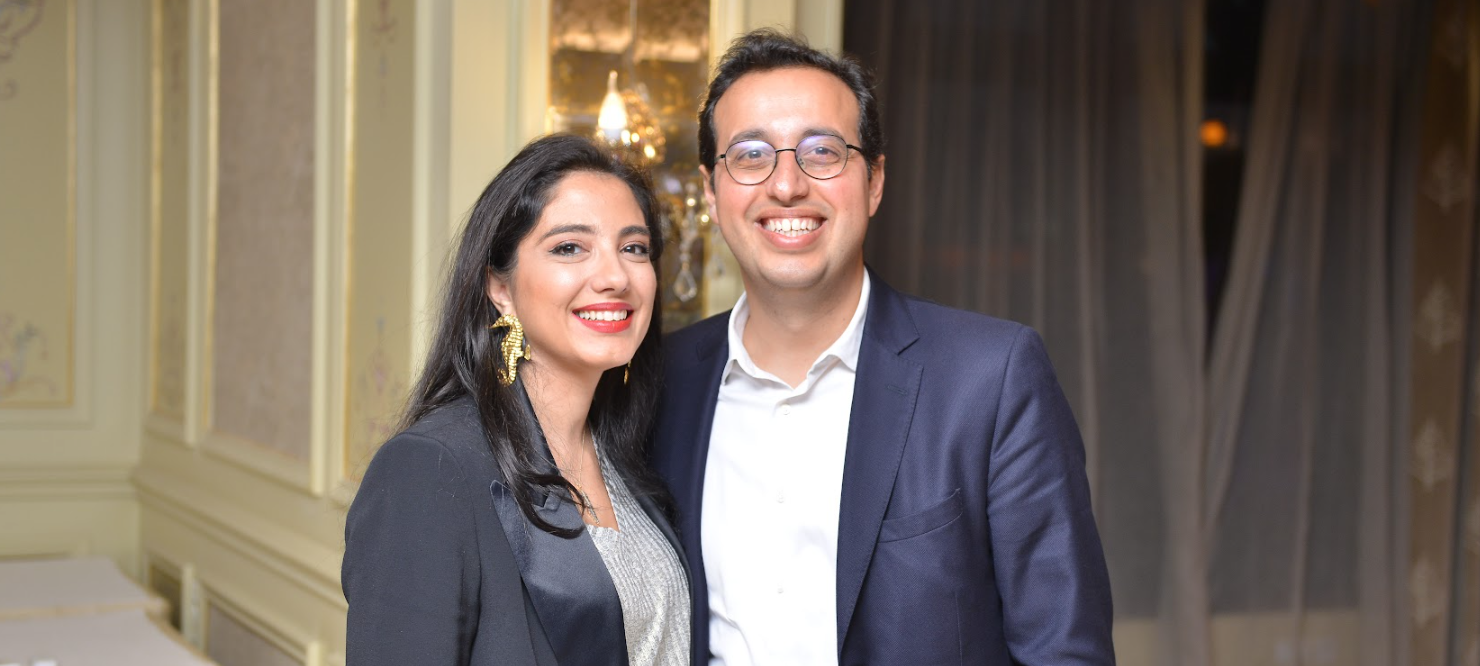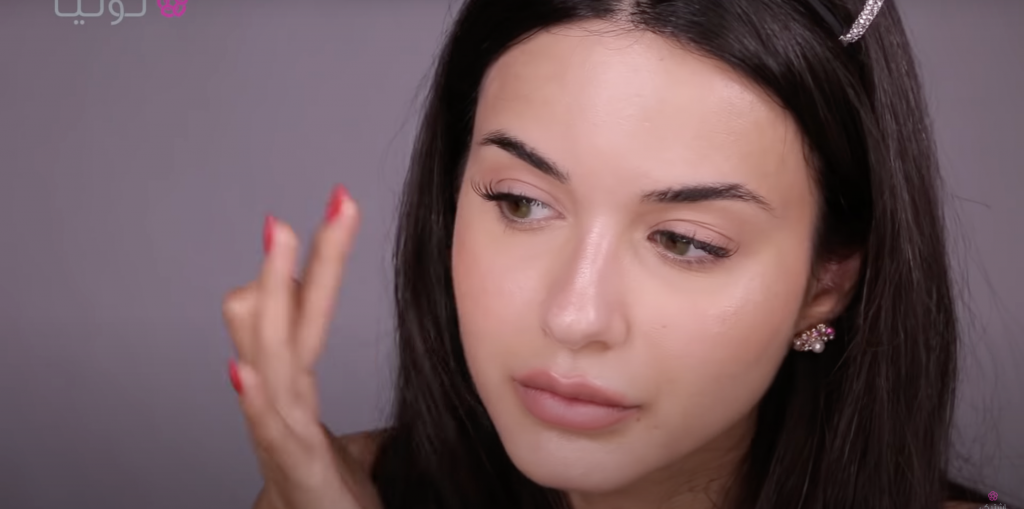Beirut entrepreneurs on being “the last ones standing in a crisis”

LooliaCloset, SohatiCare, Ounousa… Wassim Kari (M.05) and Elsa Aoun (H.07) built a digital galaxy in the health and beauty sector. From articles to make-up tutorials and online pharmacy shopping, they have the ambition to become the ultimate third party for women in the MENA region. Based in Beirut with offices in Jordan and Egypt, this couple of entrepreneurs just received an HEC Mercure Award for their achievement. But how did they do it in a time of economic crisis ?
How did your entrepreneurial adventure start?
Elsa: Our entrepreneurial career kicked off when we were at HEC. We started Ounousa, a female online magazine with content in Arabic, in parallel to our corporate jobs. We continued in our journey as consultants while at the same time making sure the articles were written and the platform taken care of.
Wassim: Within the master’s at HEC, I did management in technology. It was 2005 and we had to create a project. The project we went for looked like aufeminin.com, a big hit back then. We tried to do it for the Middle East and North Africa region. It was pure bootstrapping at the beginning. Five years later, we created Facebook pages and directly adopted a social media oriented model, which resulted in a very aggressive acceleration of traffic here in the Middle-East region. When we were still in France, we were receiving calls from advertising agencies in Dubai and Beirut. This is where we needed to incorporate a company to be able to sign contracts.
Elsa: It needed more time and dedication from our end. So after my experience at Booz & Company [editor’s note: a consulting firm], I decided to quit consulting in 2013 and totally focus on Ounousa.
Wassim: I followed Elsa three years later when we had multiple platforms. There was a health content platform called Sohati – which means “my health” in Arabic – and a YouTube channel called Loolia. The acceleration of our project was after we left consulting and closed our first rounds of funding. We had the VCs in our cap table, a shared strategy with the board and we needed to execute on that – a real booster!
Why beauty and health? Did you spot a need for these platforms in your region or is it a personal interest of yours?
Elsa: There was obviously a lack of content dedicated for women in Arabic. Loolia is where we do collaborations with influencers in makeup, beauty and fitness. We moved to e-commerce because the community was very engaged with the content, but where could they buy the products from? A part was missing. We created Loolia Closet, a beauty e-commerce platform targeting cosmetics. 70% of the products we sell are French !

A make up tutorial by an influencer from the Youtube channel Loolia, who counts more than 2 million subscribers.
Wassim: As for our health platform, female content had the highest yield and demand for advertising. We started from the classic topics for the female segment – and health was one of them. A lot of studies show 80% of the health platforms users are female. We started with the easiest business model – the content. Then we went into the online pharmacy and now we are completing the loop with an online clinic, a telehealth platform that we are going to launch very soon. Today we have more than 30 million followers on the social media from all the MENA countries.
What differentiate you from platforms like Doctolib or Life MD?
Wassim: We are the only one who has an online pharmacy. We believe in the online prescription. If one gets an online prescription after a consultation with a doctor and we are allowed to sell the drug in an e-commerce model, that will create a value for the patient. Because everything can happen online, at least in the cases you don’t need a physical encounter.
Elsa: We believe that it would be great if we can have a full patient journey on all our platforms. From reading about a disease to booking an appointment and having an online consultation on SohatiDoc to using the prescription to buy a medicine. So far they can buy OTCs [Over-the-counter drugs] or dermo-cosmetic products but later on, when regulation allows it, we will be able to close the loop on all of that.
Wassim: Lebanese doctors and the medical system is used by the whole region here. Patients from neighboring countries travel to Lebanon to get high quality treatments. Many of the diaspora are in under-medicated countries, so it can solve any problem of access to high-quality doctors.
Elsa: The existence of this big diaspora is a good advantage too – there are more Lebanese outside of Lebanon than there are within the country. Typically, we would want to appeal to this community as they often build strong relationships with the doctors that they have here in Lebanon through their family ties.
You have established a flourishing business, multiplying your growth and turnover by four in the last four years despite Lebanon experiencing a major economic crisis. What is your vision of entrepreneurship?
Wassim: There is a lot of liberty both in the business side and on the personal side. If we know what we want to do, we can just go and do it. There is more slowness and politics in the corporate world. Entrepreneurship is a lonely game though. When all is well, everybody applauds. Everybody wants to join the party. If one thing goes wrong, your investors start telling you that you did not take the right decision. If employees feel that there is something wrong in the startup, they start finding other jobs and you’re alone in facing these bumps.
Elsa: You are constantly managing uncertainty. One day everything is okay, the morning after you have to work on your competition, your team structure, on a market that is completely changing or on a currency that is collapsing. In our region we have been witnessing these types of very harsh environments and changes in the macroeconomic system.
Wassim: We started figuring out how to do proper commerce in a hyperinflationary environment. When the cash gets depreciated, the whole game was keeping zero cash, convert everything into stock, and keep on being aggressive in marketing to acquire customers.
There is an effect of being the last man standing in a crisis. If you stay standing while you see a very dire horizon, you might be one of the last ones and you will get the whole value on the table. A lot of competitors just leave the floor for you. It’s very counterintuitive and you need a lot of mental courage to do that. The cohesion of the co-founders is key here because this is the only last layer of a functioning machine. We are two and that makes us less lonely. We also have a third co-founder, Philippe Rizk, an INSEAD graduate. He is magnificent in his solidarity.
Published by Estel Plagué

